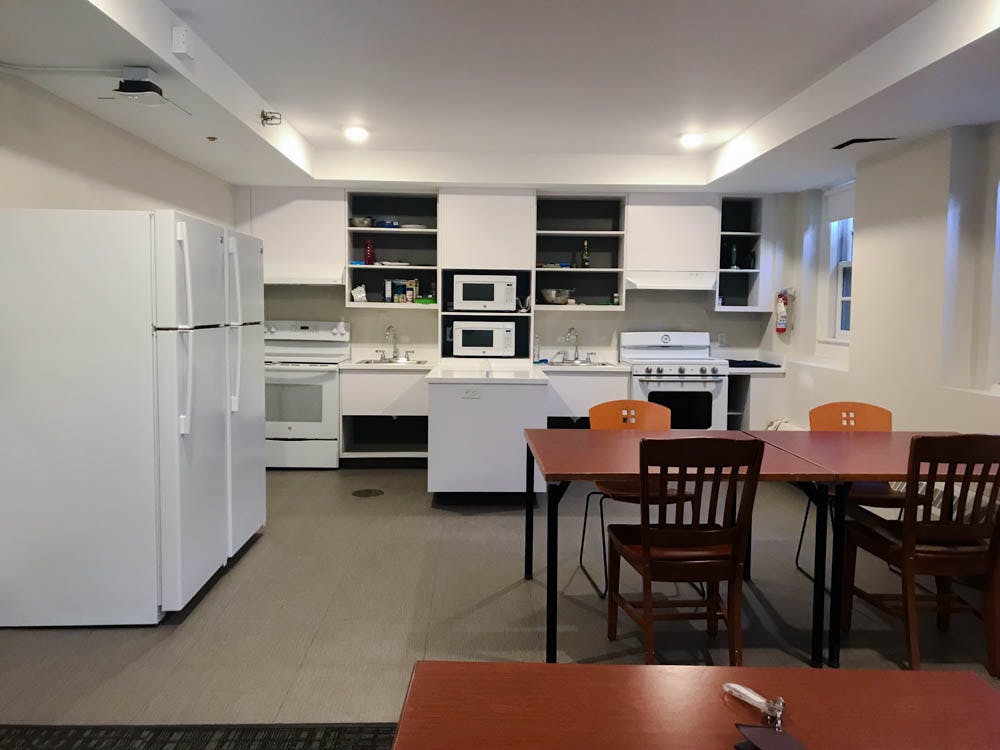Brown/RISD Hillel and the Office of Residential Life have collaborated to reserve a kitchen in Wayland House for kosher-keeping students, set to open by Passover later this month.
The kitchen will provide space for independent cooking for kosher-keeping students who hope to replace or supplement the University’s kosher meal plan.
“We realized that while there is a kosher meal plan at Brown that students can utilize, the hours of the Ratty aren’t necessarily conducive to their being able to eat whenever they want,” said Melissa Flowers, senior director of residential education and operations. Flowers also noted that the kosher meal plan’s selections can be difficult for students with other dietary restrictions and needs.
ResLife and rabbis at Hillel had heard from students who were having difficulty keeping kosher at Brown.
“Students were struggling to meet their Jewish dietary needs in a way that was not anxiety-inducing,” wrote Rabbi Michelle Dardashti, the associate University chaplain for the Jewish community, in an email to The Herald. “This idea came about to ease psychological stress and promote social and communal thriving.”
ResLife offered a basement kitchen in Wayland House as a home for the program, since it is both convenient in location and lockable to “ensure that the space maintains its integrity,” Flowers said. Only students registered to use the kitchen will have the keys to the facility.
Some construction was done on the kitchen to make it more accessible to kosher-keeping students, including adding duplicates of all appliances and a barrier between the two sides of the kitchen to ensure the separation of dairy and meat products, as required by kosher dietary rules.
“One of the things we were trying to do is set up the space in a way that avoids the potential for mistakes,” said Rabbi Moshe Moskowitz, who directs the University’s chapter of MEOR and performed the ritual process of making the kitchen kosher. MEOR is an Orthodox outreach organization.
Having the kitchen available “eliminates a barrier to (enrolling at Brown) for people,” Moskowitz said. “Limited kosher options make it hard to pick Brown. This is a really big step in the right direction for that.”
When the kitchen opens for Passover, a group of students will cook and eat together over the holiday. Herald Photographer Akiva Chaleff ’20.5, an engagement intern at Hillel who keeps kosher, is helping to organize the kitchen after years of Passovers at Brown where he found it difficult to participate in the holiday while being vegetarian.
“I know so many other students who … want to be able to eat dairy meals and not meat meals. Let’s get together and cook as a group,” Chaleff said. “Let’s do this as a community instead of being sad (with) our microwaved dorm meals.”
Moskowitz said the kitchen will stay open after Passover for kosher-keeping students who have signed up for access to the kitchen to use at any time.
“As the observant population grows on campus … I can only see it growing,” he said. “I would love for us to outgrow this space.”
Chaleff emphasized the importance of University support for kosher-keeping students.
“The message that this sends from Brown about caring about observant Jewish students and meeting our needs is so powerful,” Chaleff said. “Food is so important to community, and having a space where I can fully participate in that is game-changing for what it means to be an observant student on campus.”





